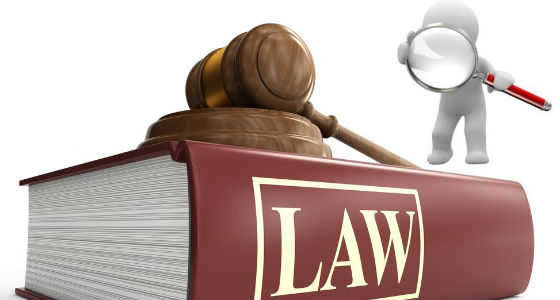20 Essentials of a First Time Home Buyer
 Buying a house is almost like marriage. It costs money and time, is forever and you have to live with the choice you made whether you like it or not. For someone who is taking the plunge, there are a whole lot of ‘things-to-do’ before you sign the final agreement.
Buying a house is almost like marriage. It costs money and time, is forever and you have to live with the choice you made whether you like it or not. For someone who is taking the plunge, there are a whole lot of ‘things-to-do’ before you sign the final agreement.
 Plan Ahead: Thinking about buying a house is a daunting task in itself. What will prove to be more difficult is allocating funds for the same. You have to build-up a decent savings balance. Keep your credit record clean. This will help you when you want to take a loan from a bank.
Plan Ahead: Thinking about buying a house is a daunting task in itself. What will prove to be more difficult is allocating funds for the same. You have to build-up a decent savings balance. Keep your credit record clean. This will help you when you want to take a loan from a bank.
 Budget your wants: Scout the market for the best deals. Look acutely into what you can afford. Check out how much loan the bank will give you and how much down payment will be needed. Also calculate how many monthly installments you will be paying. Include the moving costs in the expenses. Decide on the price ceiling- the most you will want to spend. Insuring your home will cost money. Look into that as well.
Budget your wants: Scout the market for the best deals. Look acutely into what you can afford. Check out how much loan the bank will give you and how much down payment will be needed. Also calculate how many monthly installments you will be paying. Include the moving costs in the expenses. Decide on the price ceiling- the most you will want to spend. Insuring your home will cost money. Look into that as well.
 Location: Choose your location carefully. If you plan to start a family, choose a house near a school or playground.
Location: Choose your location carefully. If you plan to start a family, choose a house near a school or playground.
 Searching for your house: Before you confirm your decision, survey the neighbourhood about the prices of property, discuss with real estate agents and go through local newspapers about property rates.
Searching for your house: Before you confirm your decision, survey the neighbourhood about the prices of property, discuss with real estate agents and go through local newspapers about property rates.
 Resale Value: Even though you are planning to stay in the house forever, survey the resale value of the property. If you change your mind later, you can always sell off the house if the resale value if high.
Resale Value: Even though you are planning to stay in the house forever, survey the resale value of the property. If you change your mind later, you can always sell off the house if the resale value if high.
 Home Loan: It is essential that you choose the right loan for your house. Discuss the possibility with various banks. Make sure you get the best interest rates.
Home Loan: It is essential that you choose the right loan for your house. Discuss the possibility with various banks. Make sure you get the best interest rates.
 Offer: Once you have all the papers in order, offer your price to the real estate agent. If he doesn’t agree, increase the money but it should fit in your budget.
Offer: Once you have all the papers in order, offer your price to the real estate agent. If he doesn’t agree, increase the money but it should fit in your budget.
 Insurance: Decide if you want to go for basic or special coverage. Insurance is an important aspect of home-buying, so don’t ignore it.
Insurance: Decide if you want to go for basic or special coverage. Insurance is an important aspect of home-buying, so don’t ignore it.
 Contracts: Get the contract checked by an expert. Include contingency clauses in it so in case there are structural damages, faulty systems or if the property doesn’t live up to its price, you can renegotiate the price.
Contracts: Get the contract checked by an expert. Include contingency clauses in it so in case there are structural damages, faulty systems or if the property doesn’t live up to its price, you can renegotiate the price.
 Final Inspection: Look for faults in the stairs, exterior walls, roof, doors, windows, cabinets. Inspect electrical components, flooring and countertops.
Final Inspection: Look for faults in the stairs, exterior walls, roof, doors, windows, cabinets. Inspect electrical components, flooring and countertops.
 Moving Costs: Moving into your house will cost money. Negotiate with various parties involved for the best deals.
Moving Costs: Moving into your house will cost money. Negotiate with various parties involved for the best deals.
 Homemaking: This too will cost you plenty. Buying utilities and other odds and ends will eat into your budget. Cater to that.
Homemaking: This too will cost you plenty. Buying utilities and other odds and ends will eat into your budget. Cater to that.
 Outside the house: The home will need repairs. Decide on the most essential ones and deal with the rest later.
Outside the house: The home will need repairs. Decide on the most essential ones and deal with the rest later.
 Tools: Invest in a good set of tools to save on fix-ups, repairs and emergencies.
Tools: Invest in a good set of tools to save on fix-ups, repairs and emergencies.
 Keys and Locks: Change the old locks that come with the house. You can never know how many people may have keys to your house, if you continue with the old locks.
Keys and Locks: Change the old locks that come with the house. You can never know how many people may have keys to your house, if you continue with the old locks.
 Fire-proof: Make your home fire and burglar-proof. Invest in a good fire and burglar alarm. This will bring down the cost of home insurance as well.
Fire-proof: Make your home fire and burglar-proof. Invest in a good fire and burglar alarm. This will bring down the cost of home insurance as well.
 All new: Don’t buy everything new. Use old appliances. Buy only what is needed.
All new: Don’t buy everything new. Use old appliances. Buy only what is needed.
 Renovation: Most buyers renovate the house right after moving, increasing their expenses. Avoid this.
Renovation: Most buyers renovate the house right after moving, increasing their expenses. Avoid this.
 Furniture: You will need to invest in good furniture whether outdoors or indoors for your home. Account for this expense as well.
Furniture: You will need to invest in good furniture whether outdoors or indoors for your home. Account for this expense as well.
 Claims: Don’t claim needlessly on your home insurance. This will increase your premiums when you renew. One can save almost 20% on premiums by not making claims in the past.
Claims: Don’t claim needlessly on your home insurance. This will increase your premiums when you renew. One can save almost 20% on premiums by not making claims in the past.







